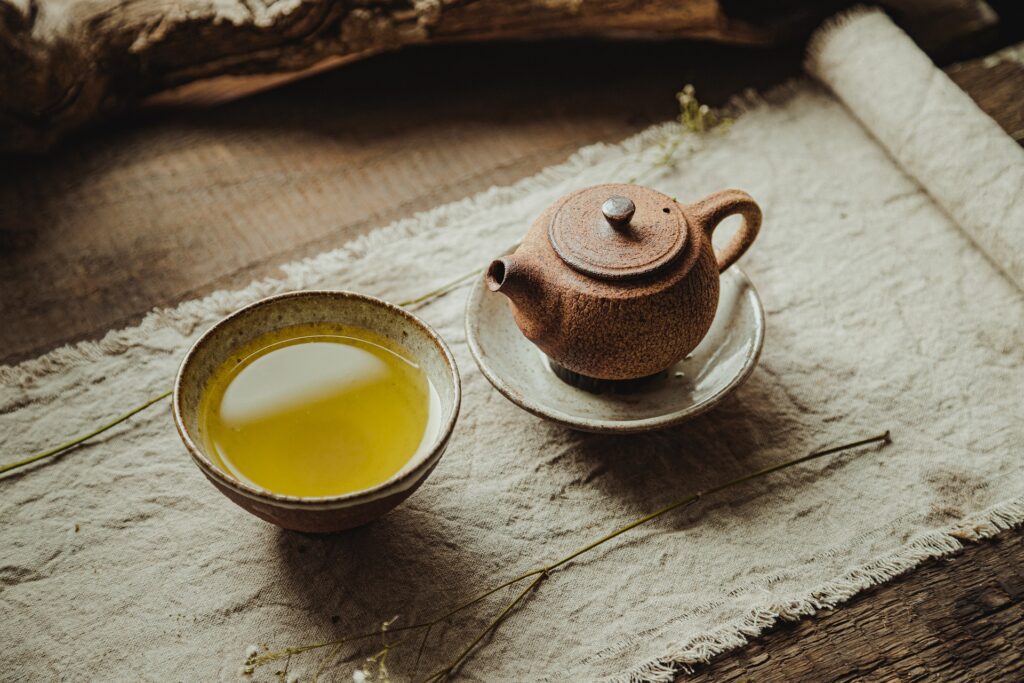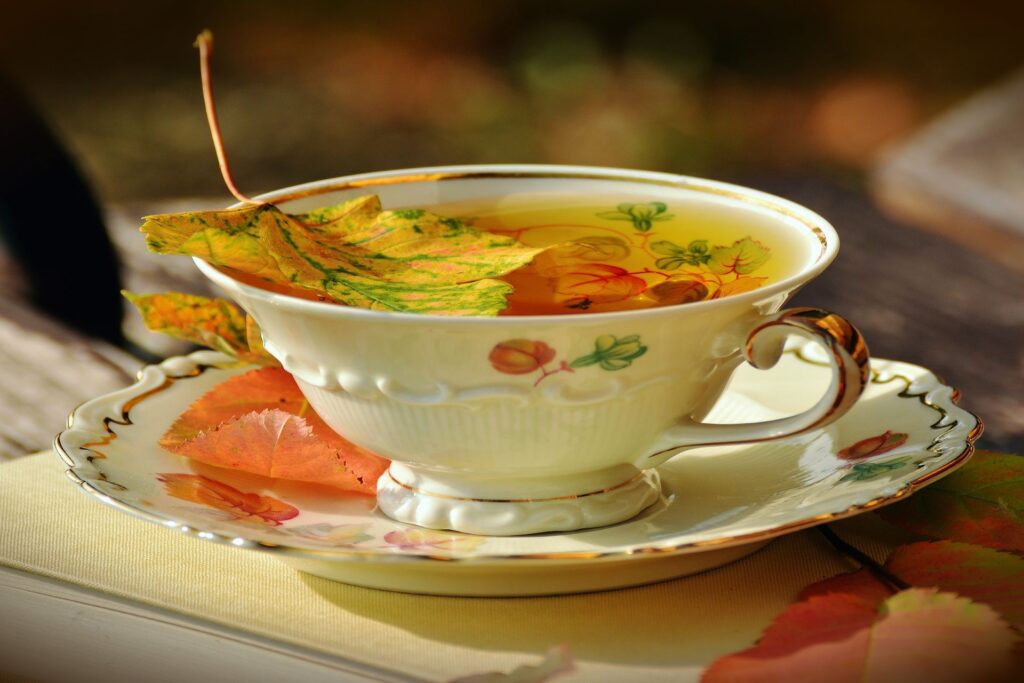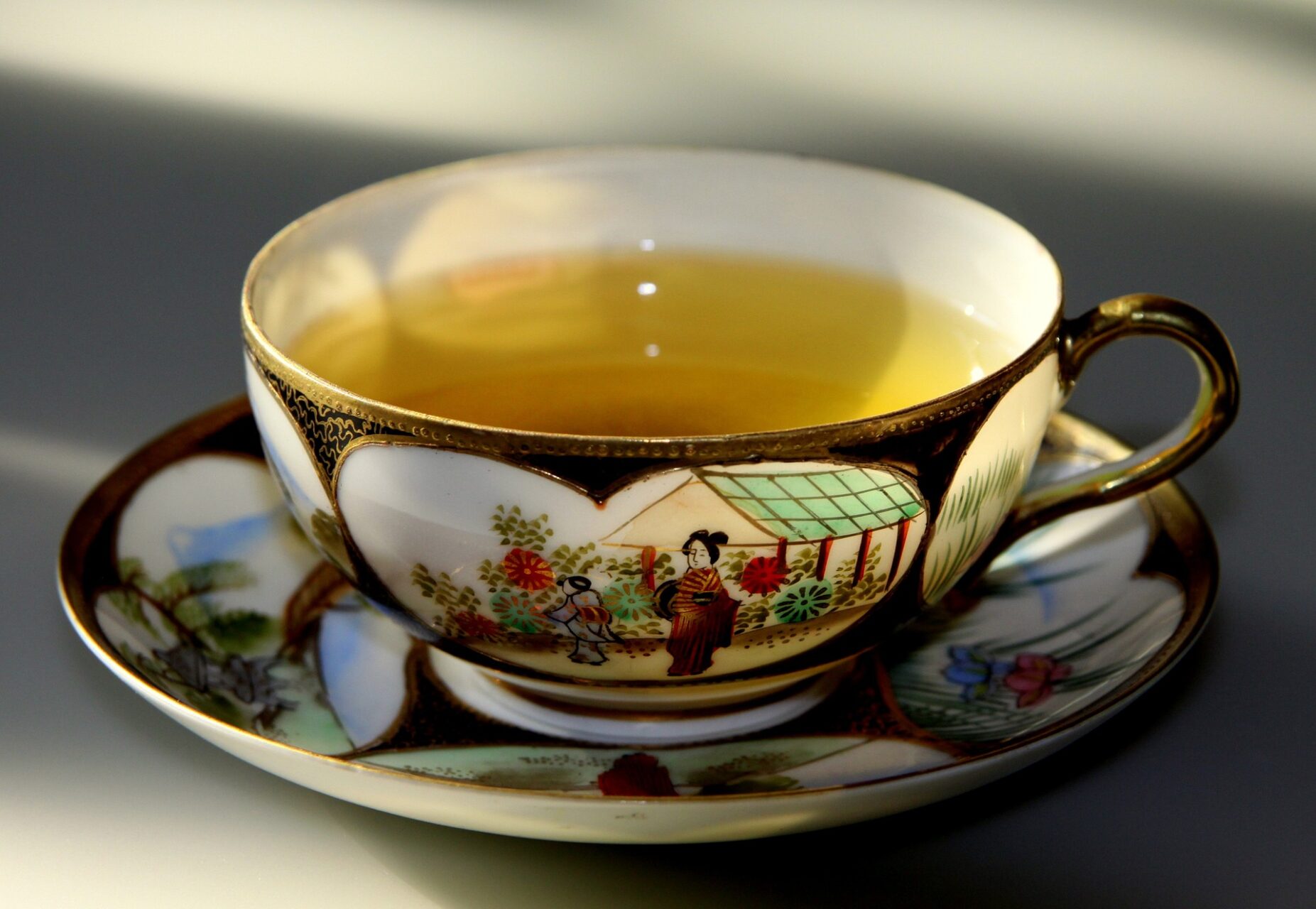History of tea in Japan is an integral part of Japan’s cultural heritage, transcends its role as a mere beverage. Steeped in centuries of tradition, the history of tea in Japan is a captivating journey, marked by profound rituals, artistic expressions, and societal influences.
Table of Contents

1. Introduction to Tea in Japan
From its humble introduction to the intricate evolution of tea ceremonies, Japan’s tea culture embodies harmony, simplicity, and spiritual depth. This article delves into the fascinating narrative of the “History of Tea in Japan,” exploring its origins, evolution, cultural significance, and modern-day manifestations. Join us on this immersive exploration into the rich tapestry of Japan’s tea legacy.
1.1. Introduction to History of Tea in Japan
Tea’s arrival in Japan dates back to somewhere between 8th or 9th century when Buddhist monks introduced it from China. Initially esteemed for its medicinal properties, tea gradually transitioned from a medicinal elixir to an esteemed cultural symbol. The aristocracy and Buddhist monks were among the first to recognize its potential, cultivating it in temple gardens and integrating it into their rituals.
1.2. Base Origins
The esteemed Buddhist monk, Eisai, played a pivotal role in fostering Japan’s tea culture during the late 12th century. Eisai brought not only tea seeds but also the knowledge of tea cultivation and its medicinal benefits. His book, “Kissa Yojoki” or “Drinking Tea for Health,” emphasized the therapeutic aspects of tea, contributing significantly to its popularity among the masses.
2. The Evolution of Japanese Tea Culture
The subsequent evolution of Japanese tea culture was greatly influenced by Zen Buddhism, a philosophy that emphasized mindfulness and simplicity, principles mirrored in the tea ceremony.
2.1. Influence of Zen Buddhism
Under the sway of Zen Buddhism, the tea ceremony, also known as “chanoyu” or “sado,” evolved beyond a mere beverage-serving activity to a spiritually enriched practice. The emphasis on purity, harmony, respect, and tranquility became the core tenets of this ceremony.
2.2. Development of Tea Ceremony
Tea masters in the history of tea in Japan such as Sen no Rikyū profoundly impacted the evolution of the tea ceremony during the 16th century. Rikyū emphasized the Wabi-Sabi aesthetic, embracing imperfection and simplicity, which became central to the tea ceremony, emphasizing the beauty in modesty and tranquility.

3. Types of Japanese Tea
Japan boasts various types of tea, each with distinctive flavors, preparation methods, and cultural significance.
3.1. Matcha
Matcha, powdered green tea, stands as one of Japan’s most revered teas. The intricate process of cultivating and grinding tencha leaves results in a vibrant green powder used in the famed Japanese tea ceremony. Renowned for its health benefits and rich umami flavor, matcha has gained global recognition beyond ceremonial use.
3.2. Sencha
Among the most popular everyday Japanese tea, sencha involves the infusion of whole tea leaves. With a refreshing taste and varying degrees of astringency, sencha’s accessibility makes it a staple in Japanese households, often enjoyed during meals or moments of relaxation.
4. Impact of Tea on Japanese Society
The influence of tea extends far beyond consumption, leaving an indelible mark on Japanese art, literature, and societal customs.
4.1. Tea in Art and Literature
Tea’s cultural significance found expression in various art forms, including paintings, ceramics, and poetry. The history of tea in Japan is often seen in tea-related art reflecting the profound influence of tea on artistic expressions.
4.2. Social and Cultural Significance
Tea ceremonies became pivotal social events, fostering bonds and emphasizing the importance of etiquette and respect. The intricate rituals of preparation and serving elevated tea consumption into a symbol of harmony and communion.

5. Modern Day Tea Culture in Japan
Since very beginning of the history of tea in Japan, tea remains deeply embedded in the country’s cultural fabric, adapting to modern trends while preserving its rich heritage.
5.1. Tea Industry
Japan’s tea industry thrives on quality and innovation, catering to both domestic and international markets. The meticulous cultivation methods and modernized production techniques ensure the continuation of Japan’s reputation for premium teas.
5.2. Tea in Contemporary Society
While traditional tea ceremonies persist, modern adaptations cater to diverse preferences. The emergence of tea cafes, innovative tea-based products, and the incorporation of tea into culinary creations reflect a dynamic fusion of tradition and modernity, resonating with a global audience.
Conclusion
The history of tea in Japan resonates as a testament to its enduring cultural significance, transcending time and space to embody harmony, simplicity, and spiritual depth. Its evolution from a medicinal elixir to a revered cultural icon signifies the seamless integration of tradition into the contemporary fabric of Japanese society.
Unique FAQs
- Is tea still a significant part of daily life in Japan?
- Yes, tea continues to hold immense cultural importance in Japan, with various ceremonies and daily consumption prevalent.
- What role did Zen Buddhism play in the history of tea in Japan to shape Japanese tea culture?
- Zen Buddhism profoundly influenced the philosophy and aesthetics of tea, emphasizing harmony and simplicity in its practice.
- How has the modernization of Japan affected its tea culture?
- While traditional tea ceremonies persist, modern adaptations and innovations have integrated tea into contemporary society, catering to diverse preferences.
- Are there any specific health benefits associated with Japanese tea?
- Japanese teas like matcha and sencha are rich in antioxidants and offer various health benefits, including improved metabolism and relaxation.
- What makes the Japanese tea ceremony unique compared to other tea rituals worldwide?
- The Japanese tea ceremony, rooted in Zen principles, emphasizes mindfulness, simplicity, and harmony, creating a distinctive and ritualistic practice.

